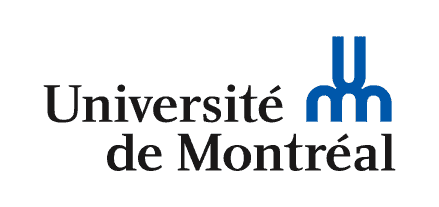

E questo, una macchina non potrà mai riuscire a farlo…
Senso, interpretazione, algoritmi e epigrammi greci
Marcello Vitali-Rosati
Università di Siena - 05-03-2024
Aiuto, “le macchine” producono senso!
- LLM
- Testi in linguaggio naturale che hanno senso
- Ma questo sembrava una “prerogativa” umana!
Tranquillǝ, ci resta … l’interpretazione!
…come nella Biblioteca di Babele
“E questo, una macchina non potrà mai riuscire a farlo…”
Arguments from Various Disabilities. These arguments take the form, “I grant you that you can make machines do all the things you have mentioned but you will never be able to make one to do X”. Numerous features X are suggested in this connexion. I offer a selection:
Be kind, resourceful, beautiful, friendly, have initiative, have a sense of humour, tell right from wrong, make mistakes , fall in love, enjoy strawberries and cream, make some one fall in love with it, learn from experience, use words properly, be the subject of its own thought, have as much diversity of behaviour as a man, do something really new. […]
No support is usually offered for these statements. I believe they are mostly founded on the principle of scientific induction. A man has seen thousands of machines in his lifetime. From what he sees of them he draws a number of general conclusions.Turing, Computer Machinery and Intelligence, 1950
Tre presupposti
- ci sono delle cose
- le cose hanno delle caratteristiche essenziali
- c’è una gerarchia ontologica
La nostra ferita narcisistica?
Delle frontiere nette?
My posthumanist account calls into question the givenness of the differential categories of human and nonhuman, examining the practices through which these differential boundaries are stabilized and destabilized. Barad, Karen. 2007. Meeting the Universe Halfway: Quantum Physics and the Entanglement of Matter and Meaning. Second Printing edition. Durham: Duke University Press Books.
Le computers
in piedi: Ester Gerston
in ginocchio: Gloria Gordon Bolotsky
Ma il senso è sempre dalla parte di…

John William Mauchly e J. Presper Eckert
Le frontiere…
Uomini/macchine
Uomini/animali
Uomini/donne
Pensatori/segretarie
Grandi intellettuali/manine (petites mains)
Senso/sintassi
Immaterialità/materia
Due strategie, oggi…
- ma… questo… una macchina non potrà mai riuscire a farlo
- capire che non ci sono “manine” (cf. Margot Mellet)
Il progetto Anthologia Graeca
anthologiagraeca.org: un’edizione digitale collaborativa dell’AG che contiene:
- diverse edizioni del testo greco
- traduzioni
- scholia
- allineamenti con il manoscritto
- metadati: autori autrici, luoghi, parole chiave, ecc.
- commenti
- riferimenti interni ed esterni
Chi interpreta? Chi produce il senso?
Il senso emerge nelle intra-azioni a partire dalle quali si stabilizzano le frontiere tra umano e tecnica
Che cos’è un epigramma?
| cosa | –> | idea |
 |
 |
|
| testo nel CP23? | testo ideale | |
| testo nell’edizione critica? | l’idea di épigramma | |
| testo nella mia memoria | interpretazione filologica | |
| testo declamato? |
Più complesso…
 |
 |
 |
entity: |
intra-azioni | testo ideale |
passage: |
l’idea di epigramma | |
| json | modelli epistemologici | |
| XML | le “manine” (cf. M. Mellet) | |
| testo (di Waltz o del CP23 etc… | i pensatori |
Reinventare la ruota
Non esistono cose “banali”
Usare uno strumento = non porsi il problema dei confini
Inventare uno strumento = concentrarsi sulla stabilizzazione e destabilizzazione dei confini.
Frontiere confuse
Prima una serie di intra-azioni. I confini poi si stabilizzano, permettendo l’emergere di..:
- formati
- struttura dei dati
- protocolli
- algoritmi
- infrastrutture
- persone e loro ruolo (più o meno “importante” e riconosciuto)
- collaborazioni
- …
Attenzione ai confini troppo stabili!